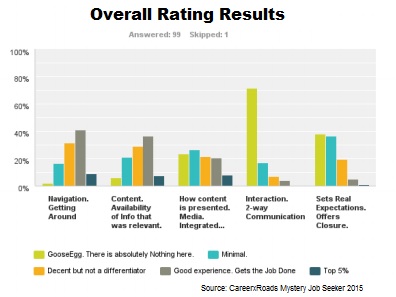You would think that a resume from Frank N. Stein, claiming Boris Karloff as a mentor, would be a tipoff to look a little more closely. Yet six recruiters were so impressed with Frank’s credentials they sought to invite him for an interview.
To their chagrin, it was Mark Mehler who answered the phone, breaking the news that Frank N. Stein was this year’s Mystery Job Seeker and purely a figment of the imagination of recruitment consultancy CareerXroads.
“Oh my,” was the usual response, said Mehler. “For the most part they took it very well.” Of course had any of the eager recruiters read through the resume they would have discovered the truth about Frank. Clearly stated on the second page was the disclosure that Frank was fictional. “Congratulations if you have read this far as most recruiters will not,” was the closing line.
As many laughs as CareerXroads’ 12-year-old Mystery Job Seeker project produces (at least for some), there’s a serious purpose to it. It tests the responsiveness of leading companies to the candidates they solicit through their online career sites. As this year’s Mystery Job Seeker report notes, “It is a dissection of the most fundamental aspects of corporate recruiting: the initial interactions between job seekers and employers, including the submission and processing of résumés.”
This year, Mehler and his partner, Gerry Crispin, had an additional objective. They wanted to see what difference it would make if Frank was unemployed. None, as it turned out.
“For six recruiters to call is, for us, an amazing number after being unemployed for more than a year.,” said Mehler in an email. “No employee referrals, no friends to carry Frank’s resume in, just a cold, black hole.”
His resume doesn’t hint at why he lost his job as a senior corporate recruiter for Johnson & Johnson, but it forthrightly discloses he has been out of work for a year, during which he turned down several offers, then took six months to bicycle across country.
Despite this, as many recruiters were interested in Frank as were in previous mystery job seekers. Notes the report, “This is a remarkable number and debunks the notion of a résumé black hole for those who apply for a job without referrals or other outside help. It offers proof that a well-crafted résumé can draw a recruiter’s notice.”
 With the help of a cadre of professional recruiter volunteers, Frank applied online to the 100 companies named to Fortune’s 100 Best Companies to Work For. The volunteers evaluated the ease and time it took to make the application, what kind of communication the companies conducted with Frank, even if only to acknowledge receipt, and other aspects of the candidate process.
With the help of a cadre of professional recruiter volunteers, Frank applied online to the 100 companies named to Fortune’s 100 Best Companies to Work For. The volunteers evaluated the ease and time it took to make the application, what kind of communication the companies conducted with Frank, even if only to acknowledge receipt, and other aspects of the candidate process.
On the positive side, the report notes that 90 percent of the companies did send an acknowledgment. The flip side, though, is that two thirds of them never provided closure. The lack of much two-way communication, defined by CareerXroads as “one full exchange of communications between job seeker and employer following the employer’s acknowledgement of receiving the application,” earned most companies a zero or close to it.
The volunteers also “scored about half the companies a zero or barely above for how they presented content, including their use of social media.”
By no means was the process entirely negative. The report notes that over the dozen years of mystery job seeking, the 100 Best Companies have improved their application process, made navigating their career sites easier, and just about half provided career content and information the evaluators rated at least a “good experience.”
